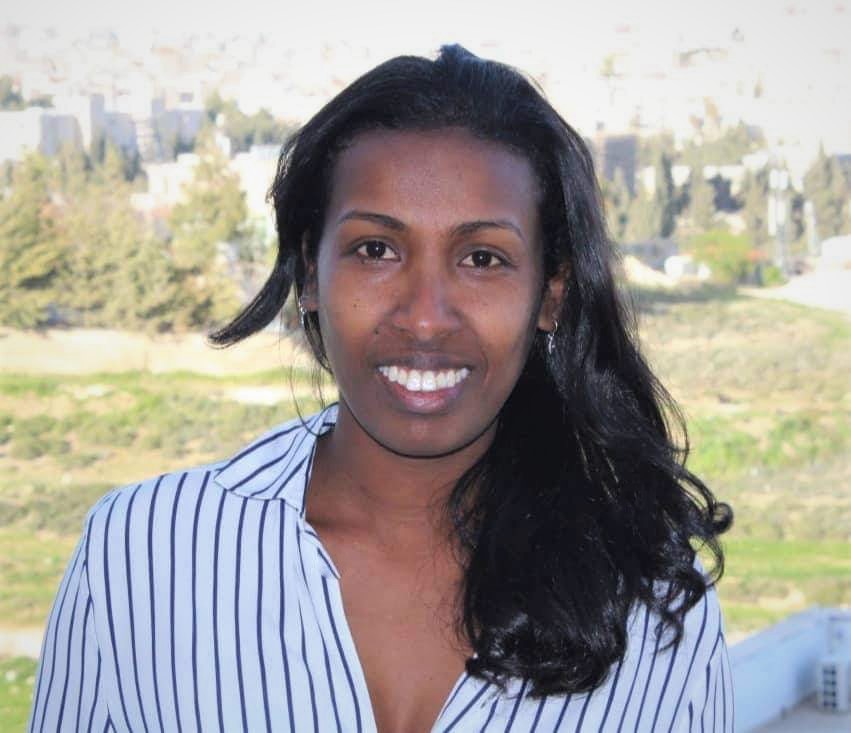Meet TRAFIG Team member Mulu Getachew Abebe from Addis Ababa University
Meet Mulu Getachew Abebe - a member of the TRAFIG research team at the Addis Ababa University, Ethiopia - and find out more about her experience, her motivation and her work in the TRAFIG project.
My name is Mulu Getachew Abebe. I am a PhD candidate in Social Anthropology at Addis Ababa University, where I also did my M.A. I am interested in the broad field of migration and refugee studies, covering the various aspects of social, cultural and political life that affect refugees’ experiences. My work focuses on trans-border migration of Eritrean refugees across the Ethiopian-Eritrean border. Before my admission to the PhD Program, I was working as a social worker in a nongovernmental organization, which tried to raise awareness on risks of human trafficking. We created socio-economic opportunities for women at risk together with community representatives - using community-based approaches in the inner city of Addis Ababa.
 By Mulu Getachew Abebe
By Mulu Getachew Abebe
My interest in Eritrean refugees in Ethiopia dates back to 2011 when I visited Eritrean refugees in the Mai Aini refugee camp to research their experiences inside the camp. During the fieldwork and the following years, I had the chance to meet many different refugees. This introduced me to the precariousness and uncertainty that refugees face at different stages of their flight, both inside and outside of refugee camps. I have been curious ever since to understand the uncertainty that these refugees experience and the way in which people cope with it. I regularly visit field sites in Shemelba, Mai Ayni, Adi Harush and Hitsats and have established bonds to longstanding camp inhabitants.
Currently, as part of the research team of TRAFIG in Ethiopia, I am doing further research among Eritrean refugees in the camps and cities, i.e.Tigray, Afar and Addis Ababa. I have witnessed current policies, which do not adequately address the challenge of forced displacement and, in particular, fail to offer long-term perspectives for those who are stuck in ‘limbo’. Refugees continue to live in situations of vulnerability and dependency due to continuous cycles of displacement and a lack of durable solutions – both in refugee camps and in cities.
Seeking to answer whether and how protracted displacement, dependency and vulnerability are related to the factors of translocal connectivity and mobility, but also how connectivity and mobility can contribute to enhancing the self-reliance and strengthening the resilience of displaced people, I think the TRAFIG’s approach provocative and engaging for several reasons: The project shows the gap in current refugee policies in taking into considerations the agency of the displaced. By focusing on the potentials created by translocal connectivity and mobility, we can foster self-reliance and resilience among displaced populations, rather than systematically blocking them. As such, the project shifts the attention of policymakers to translocal connectivity and mobility as part of the solutions to displacement, and not as problems in themselves.
Working with TRAFIG allows me to contribute to current policy and public debates on displacement, going beyond conducting empirical research to address the agency of displaced persons, as well as to better meet their needs.The project recognizes and effectively builds upon the refugees’ own preferences, experiences as well as local and transnational strategies to find security, sustain their livelihoods and become resilient again. I found the TRAFIG project interesting, as it offered me the opportunity to explore new sites apart from the research sites I already knew. The project enabled me to explore refugee camps and peripheral settlement areas in the Afar regions and carry out a comparative analysis. Moreover, the relationship among networks, connectivity and mobility are often studied in a gender-neutral way and overlooks the networking strategies of men and women. In this regard, the TRAFIG project provides me with the chance to investigate the gender aspect of network-connectivity and mobility among the Eritrean refugees.
The views and opinions expressed in this blog do not necessarily reflect the opinion of the TRAFIG Consortium or the European Commission (EC). TRAFIG is not responsible for any use that may be made of the information contained therein.